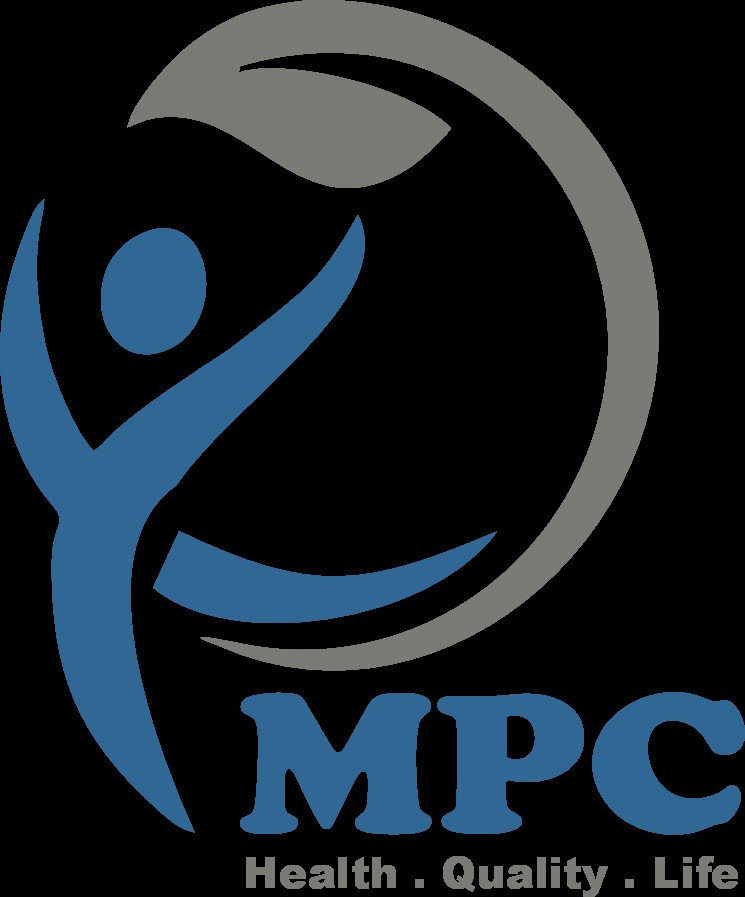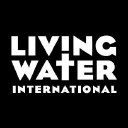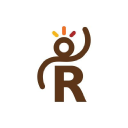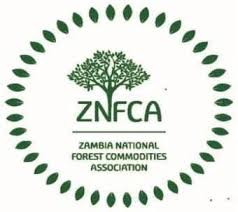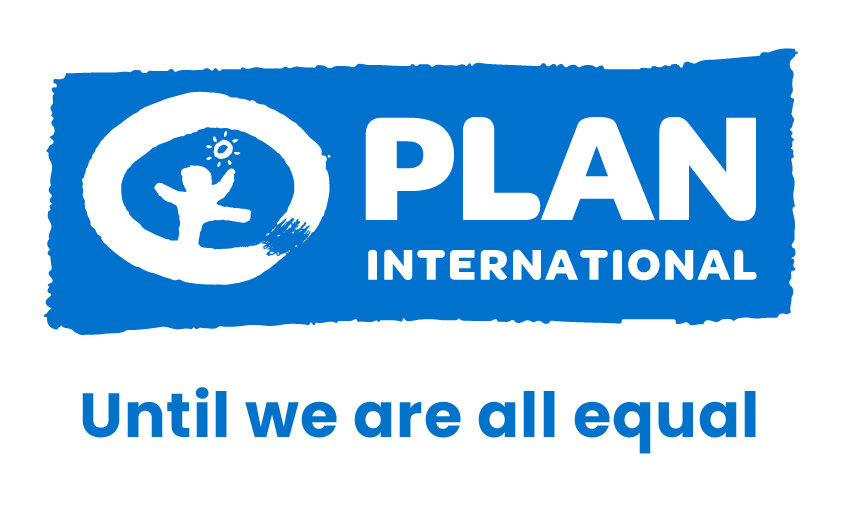Terms of Reference
1. INTRODUCTION AND CONTEXT
Country: Zambia
Project title: WASH‘n’soul Phase 2
Project No.: PN 424
Project holder: BORDA Zambia
Funder(s): Viva con Agua, soulbottles
P
roject period: FEB 2024 – JAN 2026
About BORDA Zambia
The Bremen Overseas Research & Development Association (BORDA) is a technical expert organisation based in Bremen, Germany, specialising in the field of sustainable environmental protection through integrated sanitation solutions. The organisations' activities aim at making neighbourhoods more liveable by developing and implementing innovative on-site sanitation solutions that build climate resilience, strengthen social structures, and foster the sustainable and attentive handling of natural resources. BORDA supports holistic approaches to policy formulation, participatory urban planning processes and infrastructure development. BORDA is active outside of Germany in over 20 countries in Asia, Africa, Latin America, and the Caribbean. In Zambia, BORDA has been active since 2009, and in 2016, the BORDA Zambia Country Office was established. Since 2016, the BORDA Zambia office has, together with key partners, implemented several successful Projects in the Water Supply and Sanitation sector.
Project Background
The WASH‘n’soul phase 2 is co-implemented by Bremen Overseas Research and Development Association (BORDA) Zambia in partnership with Viva con Agua (VcA) and soulbottles (sb) across 10 peri-urban schools in Lusaka City. The project implementation began in February 2024 and will run until January 2026. The project aims to demonstrate the effectiveness of a holistic approach in advancing national goals for Water, Sanitation, and Hygiene in Schools (WinS) through implementation of WinS activities and infrastructure through the School-Based Sanitation (SBS) approach. The project focused on the following four key thematic areas:
- Institutional Capacity Strengthening – Ensuring sustainable management and operation of school WASH services.
- WASH Infrastructure Improvement, including decentralised wastewater treatment (DEWATS) and robust operations & maintenance (O&M).
- Health & Hygiene Promotion – Encouraging best practices among students and staff.
- Advocacy & Knowledge Sharing – Leveraging project results and good practices to influence broader WinS interventions.
2. EVALUATION PURPOSE
Evaluation is an integral and standardised part of BORDA’s learning and accountability to improve the quality and impact of its work. The evaluation aims to assess the project’s performance against set targets, focusing on relevance, coherence, effectiveness, efficiency, impact, and sustainability, in line with OECD-DAC evaluation criteria. This evaluation provides an independent summative assessment of the project’s progress, performance, and results, examining whether the project was well-designed, effectively implemented, and delivered intended outcomes while identifying lessons learned and recommendations for future programming. The study will further assess project management, partner collaboration, and coordination. By evaluating these dimensions alongside OECD-DAC criteria (relevance, coherence, effectiveness, efficiency, impact, and sustainability), the evaluation aims to provide actionable insights for improving future interventions.
Specific objectives:
- Determine results of the WASH’n’soul project against its set targets in project log frame, identifying major factors leading to achievement or non-achievement of results,
- Assess the performance of the project based on OECD/DAC criteria,
- Evaluate the impact of project interventions, including institutional capacity strengthening, infrastructure development and social and behaviour change,
- Assess the overall effectiveness of the project management and coordination system,
- Assess the sustainability of project interventions, document key lessons, good practices and challenges and recommendations to inform the development of future WinS projects,
- Assess the project’s inclusivity, including how vulnerable and underrepresented groups such as girls and children with disability were catered for and included in the project.
3. SCOPE OF THE EVALUATION
The evaluation shall cover the entire project delivery period until the time of evaluation, i.e., 1st February 2024 till 31st October 2025. The evaluation shall analyse the entire scope of the project indicators in the logical framework, which comprises all elements of the intervention logic. The evaluation will also assess the extent to which gender and social inclusion have been considered, examine the effectiveness of institutional capacity-strengthening efforts and evaluate project management systems and processes. In addition, the evaluation will assess sustainability measures and exit strategies, including operations and maintenance systems and stakeholder ownership. The evaluation will cover all 10 target schools in Lusaka, and target groups will include both direct and indirect project beneficiaries, including the project team.
The evaluation team shall seek to:
- Assess the performance and results of the project against the objectives set in the project design and determine the reasons for success or lack thereof, draw lessons and recommendations for future programming,
- Determine the extent to which the constructed or rehabilitated WASH facilities have contributed to achieving at least basic service levels in line with the WHO/UNICEF Joint Monitoring Programme (JMP) ladders for WinS,
- Evaluate the extent to which WASH knowledge, attitudes, and practices among target populations changed resulting from the project’s social and behaviour change interventions: Menstrual Hygiene Management (MHM) trainings, Universal Languages for Behaviour Change (UL4BC), and institutional capacity strengthening,
- Assess the extent to which local stakeholders/structures were integrated in the project implementation processes and if there are indications or measures for long-term sustainability of the interventions,
- Assess the efficiency and effectiveness of the project co-implementation and management system, including staff competencies, procedures and processes,
- Generate actionable recommendations for scaling up similar WinS programming for peri-urban areas in Zambia.
4. USERS OF THE EVALUATION
The primary users of this evaluation study are the project team (including Wns staff and the co-implementation and management team, and its partners’ staff). Furthermore, the evaluation results and recommendations will be shared with the secondary stakeholders, such as the donor, government, including sectoral development partners, if applicable.
5. EVALUATION QUESTIONS (AND CRITERIA)
The evaluation will focus on the 6 DAC criteria: relevance, coherence, effectiveness, efficiency, impact and sustainability (questions presented should not be considered as exhaustive):
Relevance:
a. To what extent were the project objectives and interventions aligned with Zambia’s national WASH sector strategies, policies and institutional frameworks?
b. To what extent and how does the project respond to the specific WASH needs and priorities of the main stakeholders and the project participants?
c. Were the project approaches and interventions (e.g School-based sanitation approach, UL4BC, DEWATS, MHM, capacity building) fit for purpose and contextually relevant?
d. To what extent does the project complement other existing government and donor programmes, or risk duplication of WinS efforts?
e. How relevant were the advocacy and knowledge-sharing components in supporting systematic WinS interventions at the city and national levels?
f. To what extent did the project remain relevant and adaptive to the emerging sectoral priorities and contextual changes during implementation (e.g., policy shifts, urban growth dynamics and pressures, and or public health developments in the city)?
g. To what extent were stakeholders (schools, local authorities, parents, learners) involved in project design, planning, implementation, and monitoring of the project?
Effectiveness:
a. How do the results compare with baseline data and logframe targets?
b. To what extent were the planned outcomes achieved within the project period?
c. What factors most contributed to or hindered achievement of results (e.g project design, management, external context, stakeholder engagement)?
d. To what extent are the target groups reached?
e. Whether the planned benefits are being delivered and received, as perceived by the key beneficiaries, the donor, the responsible national government authorities, and other interested parties.
f. To what extent did the project contribute to holistic WinS modelling and broader systems strengthening (at schools and city authorities) to manage WinS services sustainably with replication potential?
g. How effective were behaviour change strategies (MHM, UL4BC, and other hygiene promotion activities) in improving knowledge, attitudes, and practices among the schools?
h. How effective was the project monitoring and learning system in informing adaptive management?
i. What innovations or good practices emerged that could be scaled up or replicated?
j. To what extent did the project benefit marginalized marginalised groups (girls and children with disabilities) reached?
Efficiency:
a. Were the financial and human resources of the project used cost-efficiently in relation to the project outputs and outcomes achieved?
b. Was the balance between administrative/HR costs and programme costs realistic, justified, and aligned with sector benchmarks in relation to the project needs?
c. Did the project achieve results on time and within budget?
d. Did the allocation of project resources demonstrate value for money in terms of economy (procurement and cost control), efficiency (timely and cost-effective delivery), to achieve the intended results?
e. Did the balance between investments in infrastructure capacity building, advocacy, and project management represent an efficient mix for achieving sustainable WinS outcomes?
f. To what extent did the project leverage school contributions, partner competencies, and existing WinS coordination structures to optimise efficiency?
g. Could the same or better results have been achieved at a lower cost and alternative delivery model, or more results with the same cost?
h. How flexible and adaptive was the project in reallocating resources to address the unforeseen circumstances?
i. How are project financial management processes and procedures affecting project implementation and delivery? What are the strengths, weaknesses, opportunities, and threats of the project’s implementation process?
j. Were the financial management processes (i.e, budgeting, reporting, and accountability systems) efficient and transparent?
k. How efficient is the overall management set-up of the project; in other words, how suitable are the management arrangements in place?
l. How appropriate and effective were the stakeholder management and communication strategies?
m. To what extent were beneficiaries involved in decision-making and feedback mechanisms during implementation?
Impact:
a. Is the project contributing to systemic changes, e.g., to improved water, sanitation, and hygiene at communities & schools (including menstrual hygiene management)?
b. How did the project contribute to systematic improvements in WinS (policies, institutional practices, financing, and governance)?
c. What measurable changes in WASH-related behaviours and practices (e.g., handwashing at critical times, MHM, toilet use, environmental cleanliness, and O&M) can be attributed to project interventions?
d. Were there any unintended outcomes, either positive or negative?
e. Did the project take timely measures for mitigating any emerging negative impact?
f. How did the project affect equity and inclusion outcomes for the marginalised groups?
g. What factors enhanced or constrained the achievement of project impact?
h. How did the project specifically impact marginalised groups, including: adolescent girls, persons with disabilities?
i. To what extent did the project contribute to broader sectoral or policy-level influence, including integration into Lusaka’s city-wide WinS planning and alignment with national strategies?
j. What broader impacts did the project have at: Macro (national/policy) level & Meso (institutional/community) level?
Sustainability:
a. What is the likelihood of continuation and sustainability of the project outcome and benefits after completion of the project?
b. Do schools and local stakeholders demonstrate ownership and commitment to continue the project-supported WASH interventions?
c. To what extent will project outcomes be expected to continue after project completion?
d. Were sustainability strategies integrated into project design and implementation from the outset (e.g., capacity building, O&M, financial sustainability, and government alignment)?
e. What capacities (technical, financial, and managerial) exist among the target schools and stakeholders to maintain infrastructure and sustain behavioural change outcomes?
f. To what extent did the project establish and implement realistic and feasible exit or transition strategies to ensure continuation of positive outcomes and minimise dependency on external support & facilitate local ownership?
g. What enabling or constraining factors (e.g., institutional support, school engagement, funding mechanisms) affect the sustainability of project outcomes?
6. EVALUATION DESIGN AND METHODOLOGY
The evaluation will apply a mixed methods approach combining qualitative and quantitative methods to ensure robust triangulation. The consultant will provide the details of the sampling procedure and data collection methods in their technical proposal.
The consultant will develop data collection tools based on the project’s logical framework, the key evaluation questions and in reference to the baseline data collection tools. BORDA Zambia will provide the consultant with the sampling procedure, data collection tools and methodology of the baseline study. The consultant will be expected to submit draft tools which will be finalised in consultation and coordination with the WASH’n’soul Project Manager. The WASH’n’soul team will review and validate the tools in line with the final evaluation key questionnaires.
7. MANAGERIAL ARRANGEMENTS/ROLES AND RESPONSIBILITIES
Consultant’s Roles and Responsibilities
The evaluation is commissioned to an external consultant/consulting company.
a. Design methodology and tools,
b. Collect, analyse, and validate data
c. Hire, train and deploy a data collection team,
d. Lead and supervise data collection,
e. Plan and conduct entry and exit meetings with project staff and key stakeholders,
f. Submit reports (Inception and evaluation reports).
The roles of the BORDA Zambia team:
a. Briefing of the evaluator,
b. Review and approval of evaluation tools (including qualitative and quantitative), methodology, sample size, etc.,
c. Review of the inception report,
d. Provide logistics coordination/support on the field itinerary to the evaluator(s),
e. Facilitate community entry,
f. Provide documentation: progress reports, proposal, baseline data, and monitoring data etc.,
g. Organise debriefing meetings with consultant(s) after field-level data collection and provide inputs if the information is sufficient to address the evaluation questions,
h. Assign the primary contact person to respond to/address the questions/remarks,
i. Payment for consultancy in line with contract terms.
8. DELIVERABLES AND REPORTING DEADLINES.
The following deliverables are expected to be submitted by the evaluator(s) as outlined below:
Deliverable
Inception report
Details & Timelines
The inception report should be written in English. Outlining evaluation approach/methodology, methods for data collection and analysis as well as the full evaluation design and interpretations of evaluation questions.
Submitted after the desk review and at least 1 week before the field data collection exercise,
Deliverable
A summary of the evaluation report
Details & Timelines
Maximum 2-3 pages written in English
Deliverable
Draft evaluation report
Details & Timelines
Written in the English language. Maximum 35 pages including executive summary, table of contents and annexes. comments will be provided on the report 2 weeks after the submission of the draft report. A standard outline for the evaluation report will be provided to the evaluator(s)
submitted within two weeks after the last field mission
Deliverable
The final evaluation report
Details & Timelines
The report needs the approval of the contracting party. In case of dissent, there should be documentation of the matter,
submission is expected by 14th November 2025
Deliverable
Debriefing session and notes:
Details & Timelines
Written summary notes of 2–4 pages In English,
outlining the most important preliminary findings and recommendations
De-briefing session shall be conducted with the project team at the end of the field mission
Digital content file
digital file with up to 10 photos of the evaluation, including photos related to the evaluation process (e.g., of group discussions, interviews, and final workshop). The photos should be submitted in a JPEG or GIF format. The informed consent of the person(s) presented is a prerequisite.
submission is expected by
14th November 2025
9. RESOURCES AND AVAILABLE DATA
The consultant will be furnished with relevant documentation to support the desk review of secondary information. The consultant will be encouraged to identify any other sources for appropriate additional information that may be required to supplement what is provided by the project.
Project documents available include:
- Project design documents,
- Project monitoring data,
- Progress reports,
- Beneficiaries’ data,
- Baseline study report.
10. TIME FRAME / SCHEDULE
The evaluation is expected to be accomplished by 14th November 2025. The assignment will be effective in action from the day of signing of the awarded contract. The assignment should not exceed more than 45 working days (including preparatory work, field visit, and report preparation).
11. CONFIDENTIALITY
All information and data acquired from documents, as well as during interviews and meetings, are confidential and are to be used solely for the purpose of the evaluation. The quantitative data should be kept by the consultant in a confidential way, adhering to BORDA Zambia’s data protection policy. The deliverables, as well as all material linked to the evaluation (produced by the evaluator(s) or the organisation itself) are confidential and remain at all times the property of the contracting party.
12. EXPERTISE OF THE EVALUATORS
The evaluation shall be carried out by a suitably qualified and experienced evaluator or consulting firm. The evaluator/s should include one team leader responsible for the overall coordination of the evaluation, and the final coherence and quality assurance of the report. He/she must have extensive experience in leading evaluations of development projects, particularly in the WASH sector, and report writing:
The team leader must have:
- A master’s degree in development studies, monitoring and evaluation or equivalent degree,
- At least +7 years overall professional experience in relevant field, including monitoring and evaluation of development, International Development, Development Economics/Planning, Sanitation, Wastewater Management projects,
- Proven knowledge of evaluation methods and techniques, at least 3 years’ experience evaluating according to OECD/DAC criteria, including a thorough understanding of data collection, evaluation methodologies and design, and strong qualitative and quantitative research skills,
- Skills and experience in the water, sanitation and hygiene sector, WASH policy issues and WASH in Schools programs.
Other members of the evaluation team are required to have the following expertise and qualifications:
- Advanced degree in development studies, monitoring and evaluation or equivalent degree,
- Knowledge of evaluation methods and techniques (OECD/DAC), including a thorough /understanding of data collection, evaluation methodologies and design, and strong qualitative and quantitative research skills,
- Prior work experience with or working for international development organisations and familiarity /with development programmes,
- Team members with WASH skills and experience, particularly WASH in Schools, will be considered as an asset,
- The composition of the team of experts should be balanced to enable complete coverage of the different aspects of the consultancy as set out in these terms of reference,
- The team leader and team members must have excellent written and verbal communication skills in English. Please consider the option of translator if relevant.
13. TECHNICAL AND FINANCIAL OFFER
Applicants must provide technical and financial offers, including:
- Technical offer including a brief description of the overall design, methodology of the evaluation and tools to answer the evaluation questions and to provide endline data. The technical offer cannot exceed 10 pages and must comply with the Terms of Reference,
- Detailed workplan/timetable,
- Financial offer detailing the proposed budget for the evaluation. It should state the fees per working day (plus the respective Tax/VAT, if applicable), the number of working days proposed and any other costs,
- Signed CVs of the team leader and team members,
- Proof of professional registration and taxation is also required (e.g., by providing the evaluator(s) tax number).
The following are key considerations while preparing the budget:
- All insurances are the responsibility of the evaluator(s),
- The budget should include all costs (i.e., anything needed to accomplish the assignment, including, for example, refreshment and transportation costs for participants at FGDs if deemed necessary, or compensation for enumerators, travel for the evaluator and team),
- Laptops are provided by the evaluator(s).
14. BUDGET REQUIREMENT
Below is a template for the budget:
Particulars Days Unit Rate Total Remarks
Persons
Team Leader
Research associates/experts
………......................................................................................................................
Sub total
Logistics
Travel &
accommodation cost
Materials cost
Miscellaneous
…............................................................................................................................
Subtotal (B)
Total
15. DEADLINE FOR PROPOSAL
The interested and qualified consultant/ consulting firm must submit their technical and financial proposal, including legal documents (registration & tax clearance in case of consulting firm and VAT registration for individual) and CVs of key personnel by
17:00 hours (COB) 19th September 2025 via email address
zambia@borda-africa.org. The technical and financial proposals must be submitted as separate attachments.
The offer will be evaluated by using the best value for money approach (combined scoring method). The technical proposal will be evaluated at 70%. Whereas the financial one will be evaluated at 30%.
Only short-listed applicants will be contacted for further evaluation. BORDA Zambia reserves all the rights to reject any or all applications without assigning any reason.
